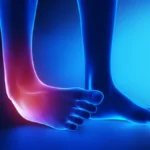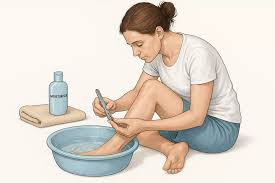Living with chronic pain make daily activities feel overwhelming. That’s why finding the right pain management techniques is key, not just for reducing discomfort, but for improving overall well-being. From medical treatments to lifestyle adjustments, effective strategies can empower chronic pain sufferers to regain control. Here’s more information on effective approaches to managing pain and enhancing well-being:
Chronic Pain and Its Challenges
Chronic pain is pain that continues for three months or longer. It can come from many sources, including arthritis, back problems, nerve damage, or previous injuries. The pain may be constant or come and go throughout the day.
Living with chronic pain creates many challenges beyond the physical discomfort. People often feel tired, stressed, or sad because of ongoing pain. Sleep problems are also common, which can make pain feel worse. Many people also struggle to work, exercise, or enjoy activities they once loved.
Lifestyle Adjustments
Simple changes to your daily routine often help reduce chronic pain. Regular, gentle exercise is one of the helpful approaches. Walking, swimming, or stretching can strengthen muscles and improve flexibility without making pain worse. Start slowly and build up your activity level over time.
Sleep plays a key role in pain management. Good sleep helps your body heal and can reduce how much pain you feel. Create a calm bedtime routine, keep your bedroom cool and dark, and try to go to bed at the same time each night. Avoid caffeine and screens before bedtime.
Diet also affects how your body handles pain. Foods that fight inflammation may help reduce pain. Limit processed foods, sugar, and alcohol, which can increase inflammation in your body.
Medical and Therapeutic Approaches
Professional pain treatment offers many options for chronic pain relief. Pain treatment doctors can create treatment plans that fit your specific needs and type of pain. Here is an overview of key approaches to medical and therapeutic pain management.
Medications
Medications form one part of comprehensive pain management. These may include over-the-counter pain relievers, prescription medications, or topical creams. Your doctor will help find the right balance of medications that control your pain while minimizing side effects.
Advanced Procedures
Advanced procedures like nerve injections or spinal cord stimulation can provide relief when other treatments aren’t enough. These techniques target specific pain sources and offer long-lasting relief. For instance, nerve injections deliver medication directly to painful areas, while spinal cord stimulation uses electrical signals to block pain messages.
Physical Therapy
Physical therapy teaches you exercises and techniques to manage pain better. Therapists show you safe ways to move and strengthen your body. They may also use heat, ice, or electrical stimulation to reduce pain.
By combining these approaches, patients can work with their healthcare providers to develop a multidimensional treatment plan. Building a support network is also fundamental for coping with chronic pain. Talk to family and friends about your condition so they can better understand and support you.
Schedule Your Pain Management Consultation
Effective pain management combines medical treatments, lifestyle changes, and self-help strategies. The right approach varies for each person, so working with a qualified pain management specialist is key to finding relief. If you are struggling with chronic pain or have questions about managing pain, contact a pain management specialist near you to schedule your consultation today.














